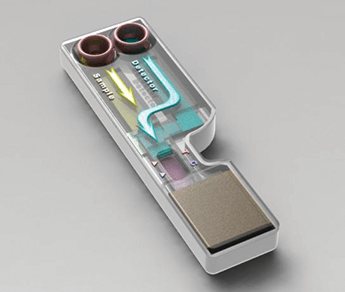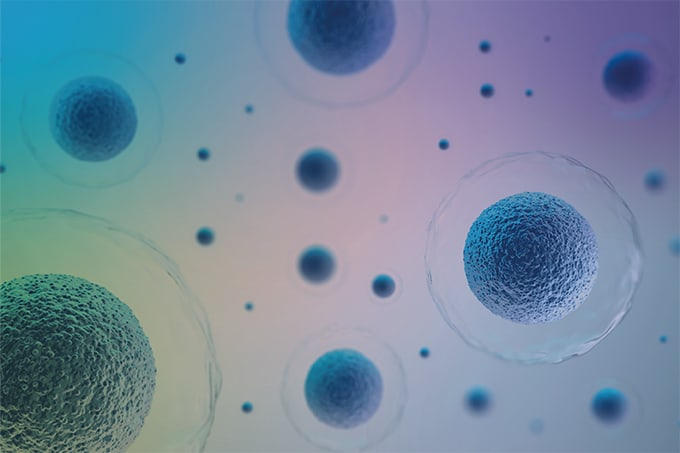Humble paper-based systems play an important role in diagnosing infectious diseases in certain settings, but there is room for improvement in terms of quantification capability, particularly when it comes to testing saliva. Jackie Ying, the executive director of Singapore’s Institute of Bioengineering and Nanotechnology of A*STAR, says that conventional lateral tests found in paper-based kits are often complicated by the severe aggregation of detector particles when applied to test samples containing salivary fluid. In an attempt to solve the problem, Ying’s group at A*STAR has developed a ‘stacking flow system’ that guides samples and reagents to the test strip through different paths, meaning that there is no need for the saliva sample to be pre-treated by filtration or centrifugation.

“The sample pad is placed at the bottom and in direct contact with the test strip, and the reagent pad is located above the sample pad. There is a flow regulator made of a liquid impermeable film inserted in between,” explains Ying. “Salivary substances that interfere with the particle-based sensing system are removed via a fiber glass matrix before they make contact with the detection reagents, which greatly reduces the background. In addition, the stacking flow configuration enables uniform flow with a unique flow regulator, which leads to even test lines with good quantification capability.” According to Ying, when multiple streams are introduced into a test strip in a conventional 2D paper microfluidic network, typically only one stream can directly enter in the same direction as the test strip; other streams inevitably enter at various other angles because of spatial restriction. “Due to the laminar nature of the flow in a paper microfluidic network, liquid from different streams would flow in parallel along the test strip, resulting in non-uniform composition in the direction perpendicular to the flow. The stacking flow design avoids the problem by stacking flow paths normal to the test strip, allowing streams to enter in the same direction,” she says. The system was applied to detect dengue-specific immunoglobulins spiked in the saliva samples. Dengue-specific IgG could be found at the onset of secondary infection in saliva samples; patients with secondary infections have a higher risk of developing dengue hemorrhagic fever or dengue shock syndrome, and discerning between primary or secondary infection could help better guide treatment. Ying believes that the system could also be adapted to detect other infectious diseases, although the selection of the right paper materials will be crucial for different types of sample matrix, such as blood or urine.

References
- Y. Zhang, J. Baia, and J. Y. Ying, “A Stacking Flow Immunoassay for the Detection of Dengue-Specific Immunoglobulins in Salivary Fluid”, Lab Chip, 15, 1465-1471 (2015).




